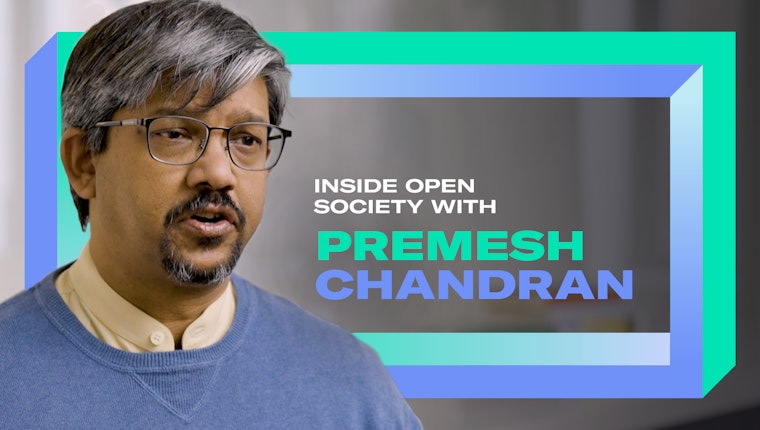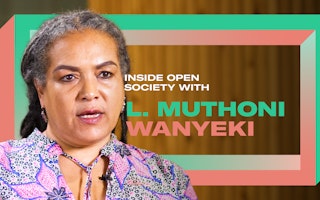Time to Revive Asia’s Tradition of Openness
By Premesh Chandran

Before I joined Open Society, you might say that I was already committed to the ideals of an open society—to the belief that people should have access to information and to have a say in how they are governed.
That’s because for most of my career I worked as chief executive of Malaysiakini, an independent news website in Malaysia, co-founded with Steven Gan in 1999. Malaysiakini took the government’s pledge not to censor the Internet, as an opportunity to deliver uncensored news online, providing a much-needed alternative to the highly regulated and controlled print and broadcast media.
By publishing accurate and balanced news, a day ahead of newspapers, Malaysiakini was able to set the agenda and grew quickly to rival mainstream media. In 2008, the ruling party lost nearly half the state governments, and a decade later, the federal government, as former prime minister Najib Razak was implicated in the multibillion-dollar 1MDB scandal.
What we were up against in Malaysia was “state capture” of the media—all the dominant news outlets were controlled either by the government, or by elite business interests closely allied with the ruling coalition. We challenged this controlling monopoly, bringing in critical perspectives that resonated with an increasingly disaffected electorate, which in turn took action at the polls. The dramatic outcome demonstrates how effective democracy demands much more than just the right to a secret vote to hold government accountable; it also needs an independent media, as well as the freedom to organize.
This is my background. It’s specifically a Malaysian story— but with some regional and global lessons, perhaps.
Malaysia is just one part of a vast region that stretches from Pakistan to the Pacific. The region is home to over half the world’s population, some of our oldest civilizations, and a vast range of ethnicities and languages.
We have a diversity of political systems, including communist countries such as China and Vietnam, military-backed governments in Afghanistan and Myanmar, as well as democracies—some constrained by authoritarian parties or rulers.
Asia is equally diverse economically, with Singapore, Japan, and Korea with high GDPs per capita, with Laos, Nepal, and Timor Leste on the list of least-developed countries. Inequalities abound, with cities being home to rich elites, a growing middle class, and millions stuck in urban poverty, with the pandemic hitting the most vulnerable people, like day wage workers, particularly hard.
In Asia, democracy expanded in the mid-1980s, with dictatorships falling in South Korea, the Philippines, Thailand, and Indonesia. However, in more recent years, we see the rise of religious nationalism. The postcolonial proposition of equal citizenship is eroded in favor of the dominance of an ethnic or religious group. It is deployed as a majoritarian ruling ideology and weaponized as a tool for polarization, conformity, and social exclusion, while often masking corruption and incompetence.
At Open Society, we argue that democratic accountability and participation provide the best way for countries to arrive at solutions for the tremendous challenges we face. A political system that respects human rights, a judicial system that upholds justice, and an economic system that serves the majority, rather than a narrow elite, are all key elements to ensure governments deliver.
States also require big powers to respect a rule-based international system, that allows for growth and stability, while addressing the climate crisis and crippling international debt. The tremendous economic progress in China and India will need to be coupled with a global and regional system that promotes peace and cooperation, despite the economic competition.
As old civilizations and trading societies, with a long history of exchange and migration, I believe Asia is rooted in common ideas of social cohesion and in the notion that states should provide justice and well-being for all their people, despite whatever religion, ethnicity, gender, or sexuality you belong to. This open approach was part of our societies, and to a degree it has been lost. Building social inclusion and ensuring democracies that deliver for all, is both the past and the future of Asia.

Premesh Chandran is executive director of Open Society–Asia Pacific.


